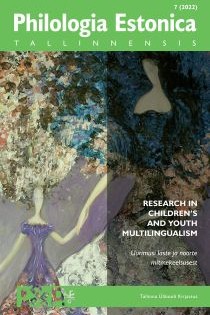The bilingual advantage: performing the non-word repetition test

Abstract
The study investigated the accuracy of non-word production by bilingual and monolingual children. The participants (125 children in total) belonged to two groups of bilingual children with different language repertoires and one group of monolingual Lithuanians. The analysis revealed that the overall performance of both bilingual groups was better than in the monolingual group. The bilingual children demonstrated more accurate and statistically significant results in repeating longer and structurally more complex non-words. The findings of this study suggest that the bilinguals being acquainted with two phonological systems had a greater experience with diverse phonology, which ensured a more precise performance of the task.
Keywords
bilingual and monolingual children, language acquisition, Lithuanian, English, Russian